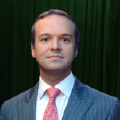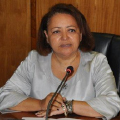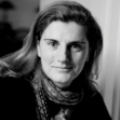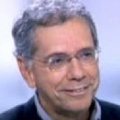
Emerging Countries and the "Return of Geopolitics": Economic and Geopolitical Cross-Sectional Perspectives
In 2014, the deceleration of global growth trends revealed wide disparities between emerging countries. While the big emerging countries face a decline in their growth potential, smaller ones continue to show resilience and drive in what seems to be a difficult international grid.
The year 2014 also brought along some international tensions, leading to a discursive shift entailing a "return of geopolitics" perspective, which in other words explains a return to classical power politics. This consequently questions, both directly and indirectly, the established order, and explains the scope and context of the respective crises, though these vary by region.
Description
Against this backdrop, the French Institute of International Relations (IFRI) and OCP Policy Center launched in 2014 the “IFRI-OCP Policy Center Roundtables” to analyze the nature of the link between development challenges and the emergence of the "return of geopolitics" approach. These series of roundtables, which take place biannually, bring together researchers, and public and private sector experts interested in the challenges and opportunities of economic development in the face of an ever-changing geopolitical order.
The objective of this conference is to examine the link between economic development on the one hand, and challenges of the "return of geopolitics" on the other, as both of these respective stances hold important ground while explaining the existence of developing countries in a complicated world order. This will enable a juxtaposition of these two perspectives, while addressing both large emerging countries and smaller, less obvious ones that, by definition, may not have the same objectives.
Speakers will be consequently working on both levels, contributing to a better understanding of development and its implications. The methodological interest lies in the intersection of economic and geopolitical approaches to better discern the nature of the trends and try to identify points of logical dissonance.
The first edition of this event, which took place in December 2014 in Rabat, Morocco, discussed China, Russia, Turkey and Morocco. The second edition was held in May 2015 in Paris, France and addressed the cases of Côte d’Ivoire, Nigeria, Brazil, and Indonesia. The third edition, which took place in Rabat, Morocco, tackled the cases of Ethiopia, South Africa, DRC, Mexico, India, and Vietnam. For our fourth edition in Dakar the following countries will be addressed: Senegal, Malaysia, Kenya, Argentina, Egypt and Angola.
Agenda
|
Thursday, april 28 |
|
| 09:00 – 09:30 |
Welcome Note Speakers |
| 09:30 – 10:45 |
Session 1: KENYA Chair Speakers |
| 10:45 – 11:15 |
Coffee Break |
| 11:15 – 12:30 |
Session 2: ARGENTINA Chair Speakers |
| 14:30 – 15:45 |
Session 3: ANGOLA Chair Speakers |
| 15:45 – 16:15 |
Coffee Break |
| 16:15 – 17:30 |
Session 4: EGYPT Chair Speakers |
|
Friday, april 29 |
|
| 09:30 – 10:45 |
Session 5: MALAYSIA Chair Speakers |
| 10:45 – 11:15 |
Coffee Break |
| 11:15 – 12:30 |
Session 6: SENEGAL Chair Speakers |
| 12:30 – 13:00 |
Conclusion |
| 15:30 – 17:30 |
Policy Discussion(Open to public) - Open to public- officials, researchers, journalists, entrepreneurs, private sector - Recap of the development issues/opportunities discussed during the seminar |
-

Jalal Abdellatif
Head of Governance and Human Security Cluster, UNECA, Senior Fellow, OCP Policy
Jalal Abdel-Latif is currently the Governance and Human Security cluster head at the Capacity Development Division at the UNECA. JALAL has over 25 years of professional experience in the areas of corporate social responsibility, civic engagement, grant making, project design and enhancing the capacities of non-profit organizations. He began his career as researcher and capacity analyst at UCLA African studies center. He then worked as Grants manager for USA for Africa (the We Are the World project) in California. He was a co-founder and CEO OF Inter-Africa Group, regional think tank. He was appointed by the late prime minister to serve on the Ethiopian telecommunication Board of directors to assist in its modernization and expansion.
-

Alain Antil
Head of Sub-Saharan Africa Program, Ifri
Alain Antil is a research fellow and head of the Sub-Saharan Africa Program at Ifri. He teaches at the Institut d'Etudes Politiques of Lille and at the Institut Supérieur Technique Outre-Mer (ISTOM). Alain Antil obtained his PhD in political geography at the University of Rouen. Prior to that he was associate research fellow at the Laboratoire d’Etude du Développement des Régions Arides, collaborated for the International Crisis Group and regularly contributed to the revue Sciences Humaines. He was a teacher at the University of Rouen and the University of Versailles Saint-Quentin en Yvelines.
-

Abdelhak Bassou
Senior Fellow, OCP Policy Center
Abdelhak Bassou occupied several offices within the Directorate General of the Moroccan National Security where he was Borders’ Division Chief from 1978 to 1993. He was the former Director of the Royal Institute of Police in 1998. He also served as the Chief of Regional Security (Errachidia 1999-2003, Sidi Kacem 2003-2005) and was also Head of the Central General Intelligence from 2006 to 2009.
He also contributed to the output of several international organizations endeavors including the Council of Arab Interior Ministers from 1986 to 1992, where he represented the Directorate General of National Security in several meetings. Abdelhak Bassou holds a Master’s Degree in Political Science and International Studies from the Faculty of Law, Economics and Social Sciences of Agdal in Rabat.
-

Rafael Benke
Chairman of the Board of Trustees, CEBRI
Rafael Benke is the Chairman of the Board of Trustees of the Brazilian Center for International Relations- CEBRI. He is a member of the Council of Foreign Affairs and Trade of the Federation of Industries of the State of São Paulo (FIESP) and of the Council of Foreign Relations of the Federation of Industries of Rio de Janeiro (FIRJAN). He held several senior positions at Vale, including Global Head of Corporate Affairs, looking at international business strategy, policy & regulatory affairs, international trade & investments, sustainable development and Corporate Social Responsibility in all continents. He served as legal advisor to Brazil’s Foreign Trade Secretary; consultant to the Organization of American States and international associate at the World Trade Organization. He is also a former member of Royal Dutch Shell’s External Review Committee on Sustainability.
Rafael is an attorney and holds a Master in Law of International Economic Relations (PUC-São Paulo) and a Master-LLM in International Economic Law (University of Warwick, UK). He was a visiting scholar at Georgetown University and fellow of the Institute of International Economic Law, in DC. He served as the Assistant-Editor to the JIEL (Oxford Univ. Press) and pursued business education at the IMD Business School (Switzerland), and Getulio Vargas Foundation/ISAE (Brazil).
-

Karima Bensoultane
African Institute for Economic Development and Planning
Ms. Karima Bounemra Ben Soltane is the Director of the African Institute for Economic Development and Planning (IDEP) since August 2015. Before that, Ms. Ben Soltane Bounemra headed the North Africa Sub Regional Office of the United Nations Economic Commission for Africa (ECA), based in Rabat, Morocco. The Office covers 7 countries in North Africa (Algeria, Egypt, Libya, Mauritania, Morocco, Sudan and Tunisia). Ms. Ben Soltane was previously the Director of the «Information for Development" Division of the ECA, based in Addis Ababa, Ethiopia. This division aimed to promote the use of knowledge, information and communication for economic and social development in Africa. Ms. Bensolatne has also coordinated the realization of the African Information Society Initiative (AISI) by supporting African Member States efforts to formulate ICT policies and to implement the corresponding action plan. Previously, she was the Chairperson and Director of IRSIT (Institut Régional des Sciences Informatiques et des Télécommunications). She participated in national and international activities related to scientific research and ICT. From 1992 to 1995, she was director of the “Telecommunications and Networks” Department in IRSIT, in charge of multimedia, networking, and standardization. She is a PH.D in Information Systems from the University "Pierre et Marie Curie (Paris VI - France)" and an engineer degree in computer science from the University of Tunis (Faculty of Sciences of Tunis).
-

Sophie Boisseau du Rocher
Associate Fellow, Center for Asian Studies, Ifri
ophie Boisseau du Rocher is a senior research fellow specializing in Southeast Asian politics, geostrategic affairs and regional integration. She is the author of numerous books and articles, including Le Cambodge, la survie d’un peuple (Belin, Paris, 2011), L’Asie du Sud-Est prise au piège (Perrin, Paris, 2009) and L’ASEAN et la construction régionale en Asie du Sud-Est (L’Harmattan, Paris, 1997). She also edited the Annuaire de l’Asie orientale (Yearbook on East Asia) for the Documentation française (2006 – 2012). Dr. Boisseau du Rocher holds a PhD in Political Science from Sciences Po, Paris (1996) and has previously taught at Sciences Po Paris, Sciences Po Le Havre (Asia campus), the Institut des hautes Etudes de la Défense nationale (IHEDN), and the Collège Inter-Armé de défense. She managed the Observatory on Southeast Asia for the Directorate of Strategic Affairs of the French Ministry of Defense from 2008-2011. She is also a research associate of the GRIP (Group for Research and Information on Peace and Security) in Brussels.
-

Mathias De Alencastro
Director of Macroeconomics and International Relations, Instituto de Pesquisa Econômica Aplicada
DPhil (Oxford, 2014), MPhil (Sorbonne Paris-IV, 2009). Mathias has served as international advisor to the Secretariat of Strategic Affairs of the Presidency, special advisor for International Relations at São Paulo´s City Hall, and is currently the Director of Macroeconomics and International Relations of the Instituto de Pesquisa e Economia Aplicada (Ipea), the federal government's internal research centre. His academic research focuses on the politics of the mining sector in Angola and Mozambique, as well as Brazil-Africa since 2002.
-

Karim El Aynaoui
Managing Director, OCP Policy Center
Karim El Aynaoui is currently Managing Director of OCP Policy Center and advisor to the CEO and Chairman of OCP, a global leader in the phosphate sector. OCP Policy Center is an autonomous Moroccan think thank created by OCP Foundation to further objective policy debate and analysis of key social, economic, and geopolitical issues that affect the future of the private sector and the country. From 2005 to 2012 he worked at Bank Al-Maghrib, the Central Bank of Morocco. He was the Director of Economics and International Relations, where he provided strategic leadership in defining and supporting monetary policy analysis and strategy. He was also in charge of the Statistical and International Relations Divisions of the Central Bank, led the research division and was a member of the Governor’s Cabinet. Before joining Bank Al-Maghrib, Karim El Aynaoui worked for eight years at the World Bank, both in its Middle Eastern and North Africa, and Africa regions as an economist. He holds a PhD in economics from the University of Bordeaux, where he taught for three years. He has published articles in scientific journals on macroeconomic issues in developing countries.
-

Cheikh GUEYE
Researcher, In charge of Prospective and Strategic Studies, Executive Secretariat of Enda Tiers
Cheikh Guèye is research fellow at Enda Tiers Monde where he is in charge of strategy and forecast and program coordination.
He holds a PhD in Geography and a DEA in “Space systems and regional developments” Amongst his recent publications figure Etat, société et Islam au Sénégal. Un air de temps nouveau ?, Karthala/ASC Leiden, avec A.Seck, Mayke Kaag et A. S. Fall, 2015, as well as “Dakar, Touba and the Senegalese cities network produced by climate change” in Current Opinion in Environmental Sustainability (COSUST) Journal, 2015. -

Thomas Gomart
Thomas Gomart is Director of Ifri. He has been Marie Curie Fellow at the Department of War Studies at King's College (2003-2004) , Visiting Fellow at the Institute for Security Studies of the European Union (2003), associate researcher at Ifri (2002-2003), Lavoisier Fellow at the State Institute of international Relations in Moscow (2001).
Thomas Gomart obtained his doctorate degree in history of international relations (Paris I Panthéon -Sorbonne) and EMBA graduate (HEC Paris). He was Director of Ifri’s Strategic Development from September 2010 to March 2015 and created the Russia / NIS Centre of which he was director from 2004 to 2013.
-

Mamadou Lamine Loum
Former Prime Minister of Senegal
Mamadou Lamine Loum graduated from the Law Faculty and the National School of Administration of Senegal. He spent his entire career in the Treasury, first as Inspector and then as General Treasurer for eight years, and finally as Director from 1991 to 1993. Considered a rigorous economist, he successfully negotiated the rescheduling of his country’s debt payment with the Paris Club. He was Deputy Minister for budget from June 1993 to January 1998, Minister of Economy and Finance from January to July 1998, and Prime Minister of Senegal from July 1998 to April 2000. Since then, he has been an international consultant.
-

Moubarack Lo
Special Advisor to the Prime Minister, Senegal & Senior Fellow, OCP Policy Center
Moubarack Lo is Special Advisor to the Prime Minister of Senegal. Previously, he was president of the Emergence Institute, specializing in economic and statistical studies and strategic planning. He was also deputy director in the Cabinet of Macky Sall, president of the Republic of Senegal. He also served as an economic advisor to Prime Ministers Habib Thiam, Moustapha Niasse, and Mamadou Lamine Loum, as well as the Office of the Minister of Economy and Finance. He is an expert for the UN, the African Development Bank, the World Bank, the African Union, and Economic Community of West African States. Mr. Lo has served as associate lecturer in economic policy at the National School of Administration of Senegal and the University Gaston Berger of St. Louis. He also designed the index of development Economic Emergence Composites
-

Andres Malamud
Professor and Senior Research Fellow, Institute of Social Sciences of the University of Lisbon
Andrés Malamud is a senior research fellow at the Institute of Social Sciences of the University of Lisbon. He received a B.A. from the University of Buenos Aires and a Ph.D. in Political and Social Sciences from the European University Institute in Florence. He has been a visiting researcher at the Max Planck Institute in Heidelberg and at the University of Maryland, College Park, and a recurring professor at universities in Argentina, Brazil, Italy, Mexico, Portugal and Spain. His areas of interest include comparative regional integration, government institutions and parties, EU Studies and Latin American politics, on which he has published extensively. He served four years in the executive committee of the Latin American Political Science Association and is the current secretary general of the Portuguese Political Science Association.
-

Ahmadou Aly Mbaye
Professor, University Cheikh Anta Diop Dakar
Amadou Aly Mbaye is a University Professor and currently serves as Director of the Applied Economics Research Centre of the Faculty of Economics and Management ( FASEG ) at the University Cheikh Anta Diop of Dakar. Professor Mbaye is also Chairman of the CIEREA (Conference of Educational Institutions and Research in Economics and Management in Africa). He is the scientific coordinator of many international programs in the field of development. Professor Mbaye is the author of several publications in the field of economic development, and served as a consultant to several organizations such as UNCTAD , WTO, FAO , the World Bank , JBIC , UNECA , the UEMOA ( Economic and Monetary Union of West Africa ) , and the Senegalese government.
-

Françoise Nicolas
Director of the Center for Asian Studies, Ifri
Françoise Nicolas has been with Ifri since 1990. She is also an assistant Professor in international economics at the University of Paris-Est (Marne-la-Vallée), and teaches at Langues' O, Sciences Po (Paris) and Sciences Po (Lyon).
In the past she has taught at the Graduate Institute of International Studies (GIIS, Geneva – 1987-90), at the Ecole Nationale des Ponts et Chaussées (1991-95), as well as at the HEC School of Management (2000-02). She has also worked as a consultant to the Directorate for Financial, Fiscal and Enterprise Affairs of the OECD (1997-99 and 2010-11).
Françoise Nicolas holds a Ph.D in international economics (1991) and a MA in political science (1985) from the Graduate Institute of International Studies (Geneva, Switzerland). She has also studied at the University of Sussex (1980-81) and has spent some time as a visiting fellow at the Institute of Southeast Asian Studies (ISEAS) in Singapore (1999) and at the Korea Institute for International Economic Policy (KIEP) in Seoul (2004). -

Mario Alfredo Da Fonseca De Sottomayor Pizarro
Mario Pizarro is currently Director of Genius, an investment promotion company located in Luanda, Angola. Prior to this he held the position of Executive Director of the Banco Comerical Angolano from 1999 to 2003, where he coordinated the establishment of the bank. He also worked as the Angolan representative of the Banco Espirito Santo in Angola from 1993 to 1999, acted as consultant to BP in Angola, was an independent consultant to UNDP, World Bank and MIGA between 1986 and 1993. From 1976 to 1986, Mr. Pizarro held many roles within the Central Bank of Angola, namely Deputy Director of the International Division, and the Deputy Governor, where he contributed to the negotiation of external credit and bilateral agreements relating to credit and finance. During this time he also acted as Angola’s representative to the African Development Bank meetings. He also contributed to Angola’s independence transition, as he was member of the Banking Activities Coordinating Commission, an entity set up in September 1975, three months before Angola’s independence, with the objective of coordinating and controlling Banking activities and prepare the establishment of the Central Bank of Angola.
-

Cherif Salif Sy
Head of C2S/International Consulting Service
Former technical advisor to the President of the Republic of Senegal, Chérif Salif Sy is the Managing Director of “Chérif Salif SY/International Consulting Services”, headquartered in Dakar.
His experience and expertise is in economics, social and political fields : local governance; trade and investment and industrial projects ; economic, agricultural and rural development ; business expansion within Africa, as well as between Africa and other parts of the world; African private sector development ; public and corporate governance. After higher education in France, in Law, Political Sciences and Economics’, Chérif Salif Sy worked as teacher and research fellow, during several years. -

Alfredo Valladao
Professor, Sciences Po Paris
Alfredo Valladão is Professor at the Paris School of International Affairs (PSIA) of Sciences Po Paris. Alongside this position, he is the President of the Advisory Board of the EU-Brazil Association in Brussels, the Director of the Latin America Research Chair at CESEM-HEM, in Morocco, a Member of the Board of Trustees of UNITAR, and a columnist for Radio France International (RFI). He previously held a position as Director of the Mercosur Chair of Sciences Po (1999-2010), and he is the former Coordinator of the Working Group on EU-Mercosur Negotiations and of the International Conference of Forte Copacabana on European-South American Defense and Security Dialogue. Professor Valladão has published extensively on geopolitics, global economics, regional integration and trade negotiations, Brazil and Latin America. He holds a PhD in Political Sciences from Sciences Po Paris.









